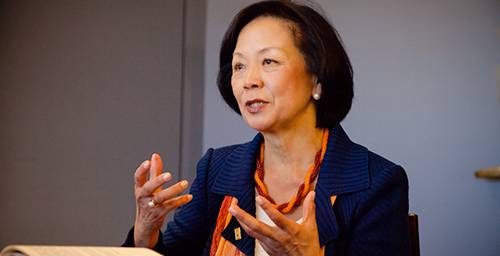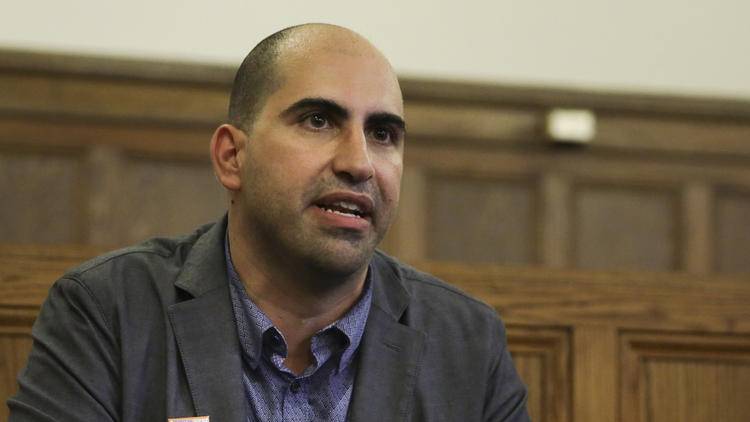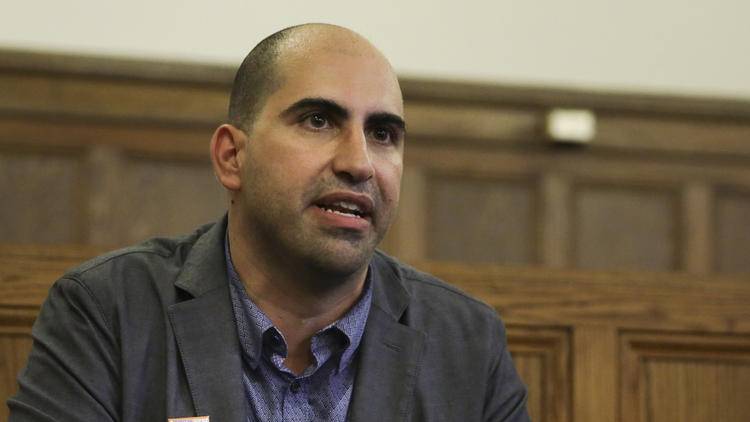As a life-long resident of the great state of Illinois, it gets a little old that we consistently set the standard for crooked administrators across the country. Sure, you’ve got the obvious culprits who contribute to the stigma surrounding the state, like Rod Blagojevich, who was arrested in late 2008 after being caught on tape trying to sell President Obama’s vacated Senate seat, or George Ryan, who was released from prison in 2013 after serving time for a plethora of corruption charges.
The embarrassment doesn’t stop at the Governor’s office, however. Just this year, United States Representative Aaron Schock, a Republican from Peoria, was forced to resign because he used government funds to pay for lavish travel arrangements and to redecorate his office in the style of Downton Abbey.
Let me type that again, in case it didn’t sink in: A US Representative from Illinois used government money to make his office look like a TV show. When confronted about the lavish spending, Schock responded simply: “haters gonna hate.”
I can’t make this shit up.
One area of state administration that has also faced criticism and hits much closer to C-U, however, is the administration at the University of Illinois. Former President Michael Hogan resigned in 2012, but not after a law school admissions scandal, an email scandal, and several questionable administrative pay raises. It probably goes without saying that the University’s current Chancellor, Dr. Phyllis Wise, is rapidly approaching the same administrator “hall of fame” that many of these previous examples so triumphantly set a precedent for.

Chancellor Dr. Phyllis Wise, photo by L. Brian Stauffer, University of Illinois
Last year was a rough year for Wise, who was caught presenting uncited information as if it was her own (perhaps an instance of self-plagiarism), a myriad of struggles with allegations of abuse of student athletes, and perhaps most notably the issues of academic freedom surrounding the decision not to hire professor Steven Salaita after he posted hateful tweets condemning Israel’s action in Gaza.

Steven Salaita at the U of I YMCA in September, photo by Armando L. Sanchez, Chicago Tribune
On Saturday, during their annual meeting in Washington, DC, the American Association of University Professors (AAUP) voted to censure the University of Illinois due to Wise’s (and the greater administration’s) handling of the Salaita incident. At first, this seemed to simply echo the call of the 16 different campus academic departments which issued votes of no confidence in Wise, and it seemed as though the outcome would be the same. While these votes of no confidence were certainly bad publicity for the Chancellor, the effect of them was not quite as evident as many would have expected. Instead, the votes seemed more like a verbal slap on the wrist without many consequences.
Every year at their meeting, the AAUP sits down to examine and vote on various issues of academic freedom for the purpose of: “informing Association members, the profession at large, and the public that unsatisfactory conditions of academic freedom and tenure have been found to prevail at these institutions.”
OK, this sounded reasonable — “maybe the AAUP censures a lot of people,” I thought, trying to hold out hope. Maybe Wise & co. didn’t screw over the University as badly as I thought — that is until I looked at the list of censures by the AAUP on a yearly basis.
The sheer rigors and exclusivity of the AAUP’s censure program make it apparent that this is an extremely emphatic reprimand. So rare, in fact, that it’s experienced by an extremely select number of schools — none of which rank as high as the University of Illinois.
This year, thee AAUP censured only 4 schools — Felician College, the University of Southern Maine, the University of Texas MD Anderson Cancer Center, and of course, the University of Illinois. Since 2005, the AAUP has only censured 21 universities — and out of those 21, the only one that could even remotely be considered a research institution is Louisiana State University in Baton Rouge, a school known more for their football team than the caliber of their academics. You can read the full list of censured institutions here.
In a time where attaching any type of good news to Illinois’ name is much needed, this censure has only dug us further into a hole. Pair that with Governor Bruce Rauner’s slashing of budgets for all public universities, and you’ve got a bleak climate for higher education in Illinois. In turn, we are going to have a harder and harder time attracting the best students and professors in the country — something essential to keeping a massive cutting-edge research institution afloat.
So thanks, Phyllis. I’m glad you’re really looking out for your students and faculty who both have worked and actively work to make U of I one of the best schools in the world. I hope that (allegedly) giving in to the pressure of wealthy donors in lieu of academic freedom was worth it, because right now it’s sure looking like a poorly conceived move.
The University of Illinois is supposed to hold themselves to a higher standard than a list as shameful as the censure list. We shouldn’t be sitting in the same ‘time-out corner’ as Northern Idaho College and Brigham Young University (who is censured because they denied tenure to a professor who did not align with the Mormon church). We shouldn’t occupy the same headlines as these institutions, but rather should be in the headlines for the remarkable academic work of students and faculty alike. If anything, the University should be a beacon that shines through the corruption and bias that has plagued our state, but right now, it seems like it’s contributing to it, with the AAUP’s censure only augmenting previous scandals.
Please don’t get me wrong: I’m not defending the things that Salaita initially said; they were heinous and disgusting — but what I am defending is academic freedom, an issue that I would hope the University of Illiois would make a high priority moving forward. Right now, many academics have lost faith in U of I, but it doesn’t have to be that way. The current administration can right the ship — they just have to demonstrate commitment to academic freedom, first, which seems to be much easier said than done.








